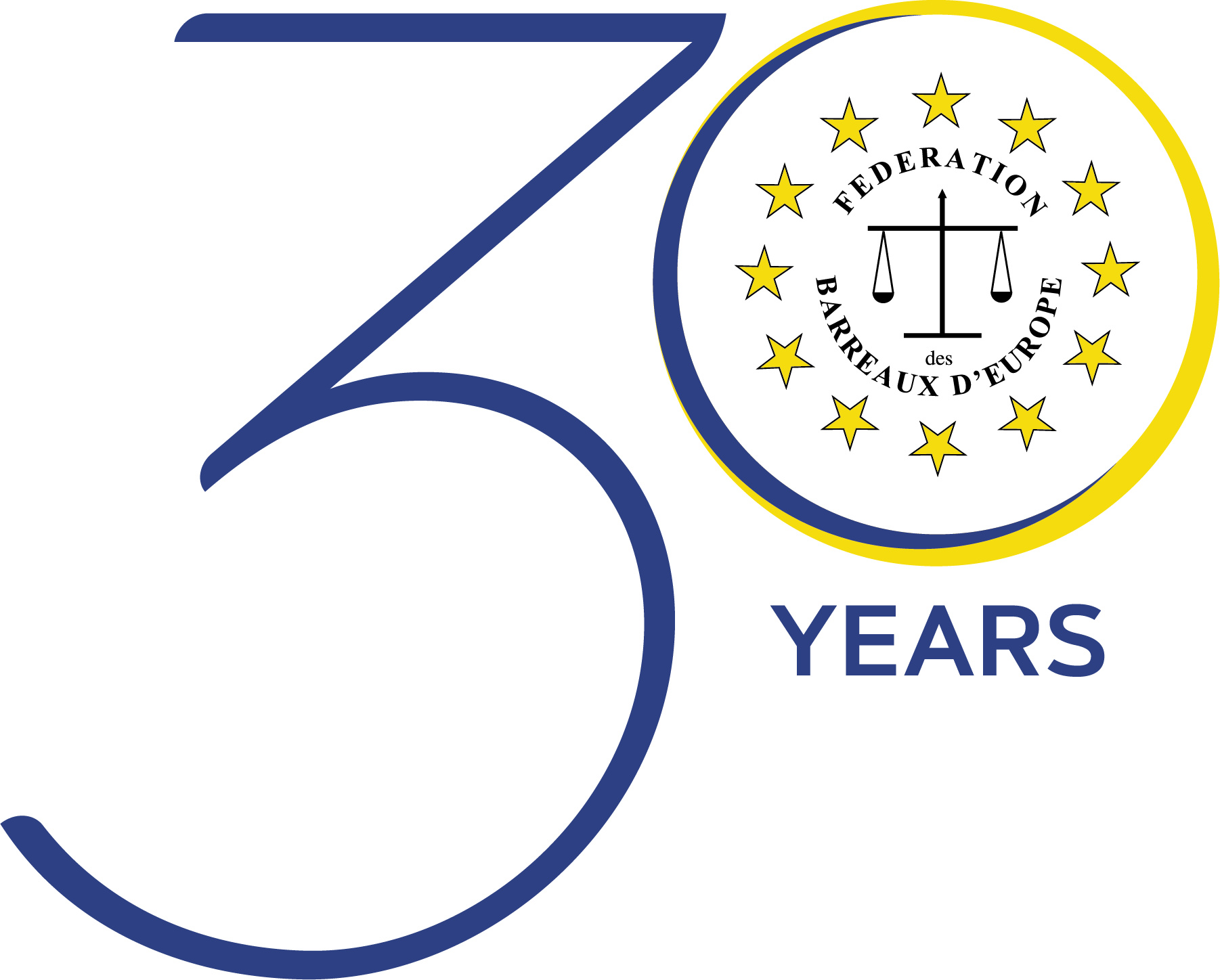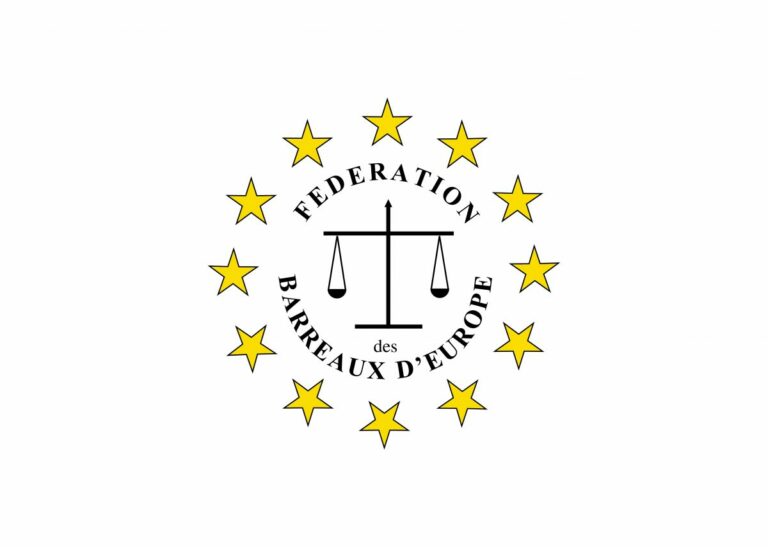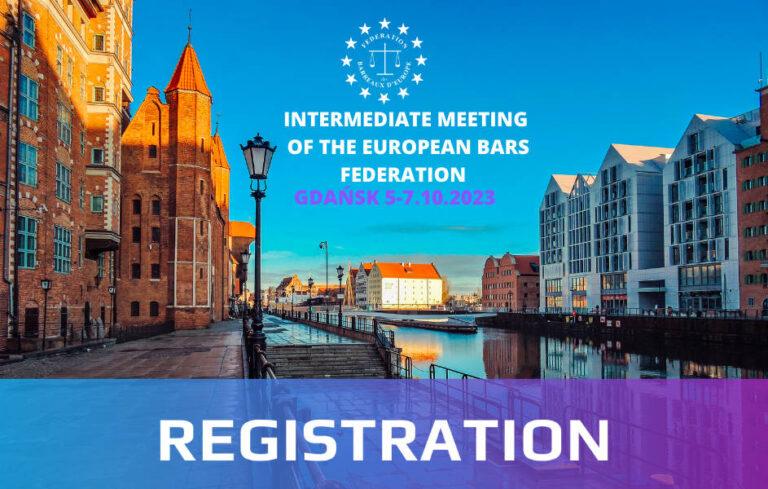Summary of 8 April 2024 @ Columns Hall in the Polish parliament
opening speeches
FBE President Izabela Konopacka
Vice-Dean of the District Bar Council in Warsaw, Advocate Katarzyna Gajowniczek-Pruszyńska
Imm.past Minister of Justice of Portugal Catarina Sarmento e Castro
Panel 1: Overcoming barriers, including glass ceiling: challenges, opportunities and strategies for women in the legal profession and their professional advancement.
Presentations, moderator Izabela Konopacka

Marzena Korzonek (judge): being attractive does not mean being stupid. She was a musician, a singer before. She and her music were wellknown in Poland. When she became a judge, a journalist asked her: are you not afraid, as a young attractive women coming from a musical career, to take such a serious position of a judge. She asked him: would you ask the same question to a man?
Physical attractiveness should not be a factor in the professional advancement. The same amounts to age. Women are often considered too young to take a certain role. This question is never asked to men.
But for women there is also a very thin line between being too young and being too old.
Ms. Korzonek would support a ‘women-club’/division within bar association.
Her takeaway: Say yes to success, say yes to women leaders, say yes to women leaders!
Maria Ejkart (vice minister): we all know the official version, but we all also know the practice.
Her bias: the biggest barriers she built herself, and breaking those barriers took a lot of time.
Fighting her own barriers was and is her biggest challenge.
As a vice-minister, she feels that she is judged more harshly and that is why I choose my words carefully.
She works in a very difficult world for women, the prisons. It is a world for men, managed by men. Her biggest challenge is to change this.
Finally, she talked about the local elections in Poland yesterday. A lot of people did not know who to vote, but many said they would vote for the first woman on the list. That is excellent!
Malgorzata Krzyzowska (advocate): barriers are also created by the ones closed to us, for example in our own family.
She always says: there is no work-lifebalance for someone who has an active life with passion for her career.
When there are projects, women often not volunteer. So if you want to be active, you have to present yourself.
Malgorzata Sudek-Janicka (arbitrator ICC): it is really important to overcome barriers, to find the hacks!
She was fortunate enough to be raised by a man (her father) who said she was smart and pretty and who gave her all opportunities.
Clients often want a man, because women should not be aggressive enough. But making in making a career aggressive men are labelled as decisive. Decisive women are considered aggressive in a negative way.
Climbing the ladder of her career she also experienced that she had to wait, because it was said that someone with more experience had to go first.
In her situation, she could be more focused on a career in the time she was not married yet. And she does not have children. She respects women with children, they have so much on their plate.
The trick is that women can do so much more in their career, as long as they are supported at home.
Izabela Konopacka: what about quotas? Sudek-Janicka: take the exemple of International Court of Arbitration in Paris. On the bench were only men in their 60’s and 70’s. The new president made a courageous change and appointed mostly women. Now 50% are female judges. The president used his presidential powers to appoint women. He made a lot of enemies, but he pulled through. And is now celebrated for this move.
Talking about solutions: (Krzyzowska): paid leave for motherhood to promote women to continue employment of climbing the ladder in management.
A big problem is also that women are not always supported by fellow women. The should do that. She gained more success, when she started supported female collegues.
Panel 2: Empowering Women Lawyers: mentoring and other strategies
for career development and advancement.
Presentations, moderator Patrick Dillen
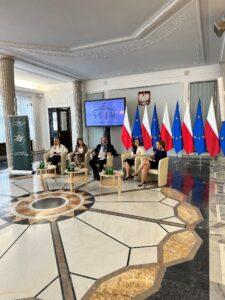
Monika Wlodarczyk (advocate and mediator): she gave a list of statements, bulletpoints: open the door to make a difference / speak up! Our voice is our most powerful tool. Real change does not happen too often. Think beyond yourself. The smallest actions can change a lot. Celebrate your achievements. Find a life partner and surround you with people that support you. Inspire people to get on your side.
Monetary rewards are not the most important, but your impact is. In many associations, until recently, only men were elected as president. She is a great promotor of mediation and negotiations > she is fed up with fighting in the court room. Mediation and negatiations are specially suited for the skills of women.
Please all read the book ‘Ask for more’ by Alexandra Carter. I changed the speaker’s life.
Finally, she advises to foster your leadershipskills by actively networking.
Monika Duzynska (advocate in a big law firm): a big law firm is a special ecosystem.
To survive and thrive, contact your peers and find a sponsor in your team or in the firm.
It is often that you think you are not good enough, not intelligent enough.
But you have to speak up Don’t worry, it works.
And have a broad vision, sometimes you have to focus more on your career then on you daily job.
Kamila Kurkowska (women in law foundation): starts by saying that the legal sector is not only the corporations/big firms.
We have to remember that a lot of women work in small lawfirms, as sole practitioners.
She created the Foundation in Poland 5 years ago. Networking and building relations works greatly and she can promote this to colleagues in other countries.
Shannon Gawley (EYBA): she gives an introduction of EYBA, the European Young Bar association.
The EYBA is anon-profit, with goal is to create a unifed voice for lawyers. Big part of that is networking and that is why EYBA is organizing events in various cities in Europe. Focus on young women.
Panel 3: Diversity and Inclusion initiatives in Bar Associations: promoting equal representation and opportunities for underrepresented groups within the legal profession.
Presentations, moderator Magdalena Witkowska
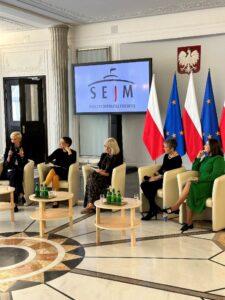
Fernanda Pinheiro (President Portugese Bar): applauds the work the FBE started in Lisbon on promoting women’s interests.
57% of Portugese lawyers are women.
A problem is that Portugese women are raised to be quite, to be on the background, don’t speak loud, don’t be aggressive.
In the law profession at least 40% of persons in positions in the bar should be of the other gender. That is the law now in Portugal.
She observes that there is more and more diversity amoung students in law. And is proud that since 2015, women have become presidents in the Bar.
It is a question of effectiveness. We need women’s divisions in the bar. If you don’t try, you will never be a leader!
Imbi Jürgen (President of the Estonian Bar): Estonia is a modern country, but we have the same problems as anywhere.
70% of law graduates are women. 60% of lawyers will be women in the future, the percentage is now 50.
So where is the problem? Is there an issue with gender bias?
In a survey a majority of women said: there is no glass ceiling.
Ms. Jürgen was not content with this question. At the same time, the leaders of big law are all men. Only 20% are women.
So we are far from gender balance.
What can we do? Yes, we can!
First: let’s talk about it and acknowlegde the problem.
In Estonia, an article was written on the subject in a legal magazine.
It gathered a lot of positive feedback and people started talking about the subject.
Second: one thing you can do: you can show possible examples. You can show women who achieved.
Create a community. In Estonia, the Bar started a social media group of women lawyers, a sisterhood. To empower eachother.
Next step: let’s get together. It was a great succes.
So Bar associations can do something to promote.
Joanna Wisla-Plonka (CCBE): National Bar of Attorneys at law we did no see women presidents. The reason was that there were no women in law committees. If it comes to knowledge as criteria to be elected, she wondered what should be done :
1 create an own budget for a separate section
2 awareness and information as well as promotion of women lawyers (no competion between women)
3 legal framework (EU) proves that women are equal
4 slow track together with fast track (quotas in this country are necessary) (parallel with big company boards quota according to EU-law).
Fernanda Pinheiro commented they changed the law in Portugal to guarantee women presence (not only on the election list but at the outcome : President and vice-President of other gender)
Jacqueline Scott (UIA President): equality must also be seen in the bylaws: we have to take all measures to promote the interest of women in law.
And it seems to work : several women are in the pipeline for different important functions nationally and internationally. There are different women committees; also LGBTH+
These issues are not only women issues. We should also have the men aboard.
Inspirational speaker
Anna Jakubowski: Co-Founder of Life Healthcare Network, former CEO of Coca Cola and Avon, Supervisory Board Member of Bank Millennium and Arctic Paper
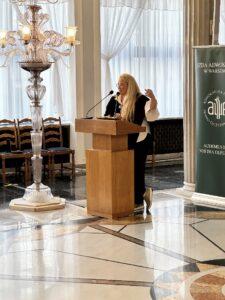
Change is inevitable, growth is optional
As organisations nowadays we are expected to diverse. She doesn’t think we are putting enough a flashlight on the problems at hand.
There are major influences that impact us: media. Media is impacting us all the time. Media is sending us what a woman should be.
Religion: most religions don’t show our most diverse sides.
Eduction: she Google-searched: childrens books for boys, childrens books for girls. You still get books about spaceships for boys, books about dresses for girls.
Homes: what roles do we play? When she was growing up, her sisters and her had to make our beds, her brothers did not.
These biases are beaten into our subconcious.
We have about 60.000 thoughts/images going through our brain.
Our brain has to transfer all of that. We have to cope with all that.
The considers herself open minded and tries hard, but still. She was on a plane and the captain made an announcement, it appeared to be a female captain. She was flown by the third female captain in two weeks.
She texted this to a friend, as it was something special. This friend texted her how lucky I was. She realized that it was a surprise to her, nevertheless and maybe that she also had a bias thinking a female pilot is something special. Implicit bias.
The discussion about equality is like putting a Band-aid on cancer.
We need to make an impact. The next time you spend money, think about your impact on society.
Do we wonder why all this girls have self confidence issues?
Idea of a change: this is inevitable, but change has to be constant.
Who we are, how we grow.
The most important lessons in life, you don’t learn at school.
She left the corporate world. She now is the co-owner of a medical clinic. With focus on holistic care, mind and body health. She also works for a biotech, blood related cancers.
The careermove was massive. A switch from soda and lipstick to health.
Promoting: there are times that strange things knock on your door. Even if you are in doubt, she encourages you to try.
On another topic: women live on average to the age of 84, men to 77. Due to our health systems, we extend our lifetime on average several months every year. Because young people will live so much younger, the decision you will be making now is only one more decision, not your last decision. We have a relationship with time. Longevity we give us many chapters in our life. Lifelong learnability.
Women in their 30’s say: when I get kids, I am off the map. And that is true. If you make change, you much be aware and able to adapt.
She says: I make a lot less money nowadays, I get invited much less to gala’s, but I am happy. For me, being of 50, how will the next 50 years be? 870000 minutes to go. I have 200000 or 300000 minutes to plan my next steps.
Learning is for her a way to stay energized. She loves to connect dots: I like to connect. I get a buzz from that.
If you have issues with your joints, in many cases the issue is metabolic. This is in most cases connected to health and diet.
Consider yourself as a brand: if you have a good brand strategy, you can summarize it to 1 word.
Her word is: Impact
Asking the public if they have a single word that defines them, anwers were: ‘change’, ‘improvement’,’peace’.
Finally: rewire instead of retire!
Panel 4: Legal Education and Training: fostering Gender Equity in Law Schools.
Addressing gender bias and promoting inclusivity in legal education.
Discussion, moderator Maria Dymitruk
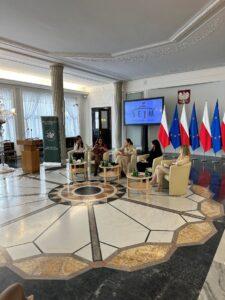
Katarzyna Bilewska (advocate): the problem with gender equality is not on base level, but later. For example: in post doc groups there are the most males. Because that is the time women start families.
Also in the bar, the higher the position is, the bigger the problem gets. To have a career, you have to be present. If you are out of the field, you are.
Katarzyna Wasowicz (UIA and Spanish advocate): at the end of 2023, 53% of the people in Spain were women. More than 70% in university are women. It is not necessary to invite them to the profession, its is necessary to retain them. It is necessary to adapt, for example to change the opening times of law offices (not 9 to 5). There is an initiative that bar associations courses for personnel to consider the rights of women. This is necessary in Spain, as the society is still quite chauvinistic. Culture is still men-driven. A lot has changed in 10 years but we still need initiatives empowering women. In law faculties, there a now workshops on the rights and interests of women and equality. But im some cases we also need improvement of the situation for men, for example on the issue of paternity leave.
In Spain we are also talking about quotas. On the board of bar associations, we only find 30% women, so positive empowerment measures are still necesssary.
Barbara Skardizinska (advocate, Warsaw bar): also meantions the possibility of getting grants.
Tijana Saldic (advocate, Vojvodina bar): strongly believes in mentoring during the legal training. In fact, mentoring is important in the life of every woman. Not only in transfer of knowlegde, but also to support otherwise. As lawyers, we should be more visible not only in the bar, but also in society.
Moderator: what is the message to our younger colleagues, what would that be? Like a motto? Go through the door, instead of fighting all the time.
Panel 5: Women-Lawyers defending cases of great social significance before the European Court of Human Rights: sharing experiences and strategies for impactful advocacy
Discussion, moderator Kamila Ferenc

Sylvia Gregorczyk-Abram: talking about a case of a client, a transgender woman in prison. Not being treated with hormonal drugs. Case on article 3 and 8.
Agata Bzdyn (attorney): it is important to claim the right under European law in first instance, or in appeal.
Magdalena Krzyzanowska-Mierzewska (member registry European Court): cases from Poland. Formalistic courts are a problem to change. Even the judges are not willing to see the system as a whole, but stick with formal decisions.
Monika Gasiorowska (advocate)
The fundamental cases we have in Poland now are about LBGTH+ and abortion.
Talking about strategies: strickly legal, depending on the sort of the client. Best strategy is to choose a good case.
Panel 6 Enhancing Legislation: identifying areas for improvement in existing laws to better address the evolving needs and challenges faced by women in various legal contexts.
presentations, moderator Bas Martens

Zuzanna Rudzinska-Bluszcz (Vice-Minister of Justice): The subjects are 1. Social, maternity, preschools, maternity 2 reproductive rights, cases before the Human court of human rights, 3. Gender equality in the labour market. Gender pay gap – women. 4. Violence against women – domestic violence huge underreporting.
What about improvement of existing laws: by governing coalition, adopting loss, length of court proceedings. Why mentioning this, because women’s rights are at state, for example in domestic violence cases.
Sabine Fuhrmann: (President Saxonian Bar): talks about the German association of female professionals. Also in Germany young female lawyers switch out of the profession within 5 years, about 40%. In Germany the amount of professionals starting their own business is rising with 20%. 55% of those are female. That is good news.
Talking about maternity leave in Germany – 12 weeks in total. Also in cases of adoption. But not for the self employed. The face high financial risks. In 2023 an initiative was started to award self employed persons to contribute to a fund, 5% of your income. We are now waiting for draft legislation.
There is a need for support for self employed persons. We also need tax initiatives for child care / baby sitter.
Parental leave in Germany is 3 years max. But the compensation is based on your income in the last 3 years. When you are employed, your current income should be the base. Good initiatives, but ineffectiveness in the execution.
Monique Stengel: (advocate in Paris): young female lawyers leave the profession soon, also in France. To tackle this, the Bar of Bordeaux created a Kindergarten for lawyers!
She speaks of a case where a pregnant lawyer in Paris did not get a postponement of the case. She fainted in court.
Talking about the right to abortion, this is now in the French constitution. The discussion on abortion started in 1975. It was a violent discussion at that time. Only since 1998 abortion was accepted, but under certain conditions. Religion is also an issue in France, most religions are against abortion.
Abortion should be adopted in the constitutions. In France, the liberty/freedom of abortion is now constituted in the law.
Maria Slazak (President of the AEA-EAL): talking about the new European Directive on employment equality. Directive on equal wages, may 2023. Has to be implemented in 2026. Employers must inform employees about the wages. This issue is that women will, in general, always ask for less pay, or too little. Under the directive, the employer will not be allowed to ask for the level of current renumeration. A weak point in the directive is that there is no reporting obligation under 150 employees. Talking also about access to justice in the directive. Women will get the right to represented by NGO’s. In those cases the burden of proof will be shifted to employers.
The other upcoming directive is named: Women on Boards. There will be a quota: 40% of leaders. It will be implemented in 2026.
Maria mentions the IAE Agency of fundamental rights in Vienna. In the face of the work on women’s rights, this highy esteemed organization could be consulted wherever a fundamental right is at stake.
Sara Chandler: she was the first female president of the FBE in 2017.
She has been fighting for women’s rights all her professional life. She started to fight for equal pay when whe was working in bakery before she became a lawyer.
The equality, diversity and inclusion committee of the Law Society published a strategic framework which enables them to review their organisations, giving guidance.
What is equal value?
Equal pay act in the UK (1970): gives us protection on the various fields. Basic salary, pension, working hours, sick pay etc. Men and women must be paid equal for the same work.
Equal pay law is also covered by the Equality Act of 2010 (age, disability, marriage and civil partnership, race, religion, belief, sex and sexual orientation) and the Equality and Human Rights Commission Statutory practise on equal pay.
Employers have gender gap reporting, but only organisations with over 250 staff.
Highest pay sectors are still male dominated. Girls do well at school but end up in sectors with narrower awards.
Parental bereavement pay must by paid by the employer, 90% of wages.
An employer discriminates against a women in the period of 26 weeks beginning of the day she gave birth if treated unfavourably.
Rooms for improvement: for example in case of adoption by a self employed woman. This is not covered by the act. No materity leave.
A lot of slogans on gender equality. As long as there is nog enforcement, it stays on the wishlist.
Conclusions
